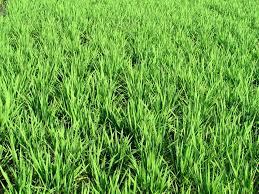
In a new study, researchers from the Department of Biotechnology’s National Institute of Plant Genome Research (DBT-NIPGR), ICAR-Indian Agricultural Research Institute (ICAR-IARI), ICAR-National Rice Research Institute (ICAR-NRRI), Cuttack and University of Delhi South Campus (UDSC), have identified a region in the genome of rice, which seems to have the potential for improving productivity.
- The scientists conducted their study by sequencing the genomes of four Indian genotypes (LGR, PB 1121, Sonasal & Bindli) that show contrasting phenotype in seed size/weight. After analyzing their genomic variations, they found that the Indian rice germplasms had much more genomic diversity than that estimated so far.
- They then studied the DNA from 3,000 rice accessions from across the world along with the four Indian genotypes sequenced in the study. They identified one long (~6 Mb) genomic region, which had an unusually suppressed nucleotide diversity region across the centromere of chromosome 5. They named it as `low diversity region’ or LDR in short.
- Rice is one of the main staple foods across the world since it has very high carbohydrate content and provides instant energy. In Southeast Asia, where it is consumed more than in the other part of the world, it accounts for more than 75% of the calorie intake. India has the largest area under rice crop cultivation: almost all States grow rice. However, it suffers from a problem of low productivity.
- In order to meet the demand of the growing population of India and the world, production of rice needs to increase significantly, say by about 50% of current productivity. Traits like number of grains per plant and weight of the grain mainly determine the yield in rice. Thus, one of the main aims of the researchers and breeders has been to develop superior rice varieties with heavier grains, which can give higher yield and better nutrition.
Image credit: Wikimedia Commons

